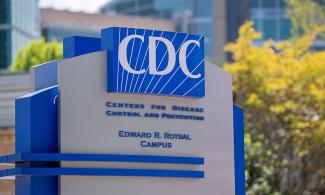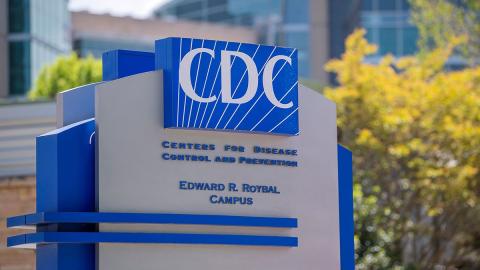
The US health officials, however, disclosed that the patient is currently recuperating in isolation with mild symptoms as they are making efforts to track down any airline passengers who came in contact with the unnamed resident on the flight, DailyMail reports.
An American who returned to the United States after a recent trip to Nigeria was tested and confirmed to be infected with monkeypox on Tuesday.
The US health officials, however, disclosed that the patient is currently recuperating in isolation with mild symptoms as they are making efforts to track down any airline passengers who came in contact with the unnamed resident on the flight, DailyMail reports.

The patient, a Maryland resident was not hospitalised according to the Maryland Department of Health (MDH) who also concealed the details regarding the resident's name, age, sex, where he or she lives, and where he or she travelled to in Nigeria.
According to DailyMail, currently, health officials say that the general public does not need to take any special precautions.
“Public health authorities have identified and continue to follow up with those who may have been in contact with the diagnosed individual,” Dr Jinlene Chan, deputy secretary for public health at MDH, said in a statement.
“Our response in close coordination with (the Centers for Disease Control and Prevention) officials demonstrates the importance of maintaining a strong public health infrastructure.”
The CDC issued a press statement disclosing its scientists confirmed on Tuesday that the traveller had a case of monkeypox.
“Travelers on the flight to the United States were required to wear masks on the plane as well as in the U.S. airports due to the ongoing COVID-19 pandemic,” the CDC said in a statement.
“Therefore, it’s believed the risk of spread of monkeypox virus via respiratory droplets to others on the planes is low.
“Working with airline and state and local health partners, CDC is assessing potential risks to those who may have had close contact with the traveller on the plane and after their arrival in the United States.”
Monkeypox was discovered in 1958 when outbreaks of a pox-like disease occurred in crab-eating macaque monkeys kept for research.
The first-ever human case was detected in 1970 in the Democratic Republic of the Congo, since spreading to many central and western African nations.
Monkeypox originated in crab-eating macaques kept for research in central and western Africa and kills 1% of those infected. Macaques are robust species of monkeys (primates) whose arms and legs are about the same in length.
It is believed that the virus transmits from animals to humans when the primate bites or scratches a person.
It can also spread person-to-person by respiratory droplets in the air - similar to the way humans spread COVID-19 to each other.
People with more serious cases of the virus will often develop skin lesions, among other symptoms such as rash and fever, and it kills about one per cent of those infected.
It is found in wild animals but humans can catch it through direct contact with animals, such as touching monkeys, squirrels rats or other mammals, or eating badly cooked meat.
The virus can enter the body through broken skin or the eyes, nose or mouth.
It can pass between humans via droplets in the air, and by touching the skin of an infected individual, or touching objects contaminated by them.
Symptoms usually appear within five and 21 days of infection. These include fever, headache, muscle aches, swollen lymph nodes, chills and fatigue.
The most obvious symptom is a rash, which usually appears on the face before spreading to other parts of the body. This then forms skin lesions that scab and fall off.
Monkeypox is usually mild, with most patients recovering within a few weeks without treatment. Yet, the disease can often prove fatal.
There are no specific treatments or vaccines available for monkeypox infection, according to the World Health Organization.